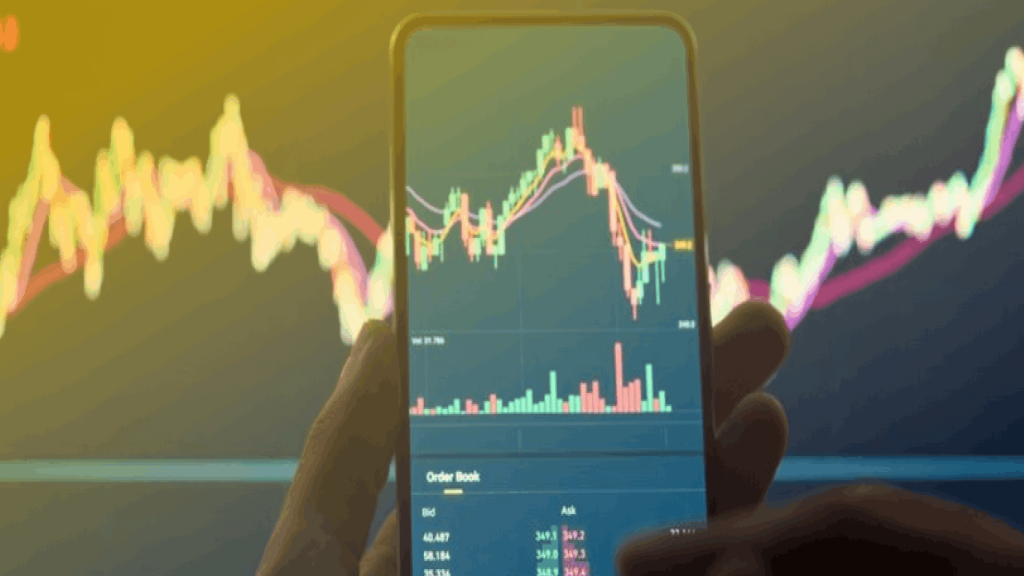
Crypto Trading KS: Exploring Strategies, Tools, and Future Trends
By Deeprivermedia
- News ,
- 26 Jul
In the rapidly evolving world of cryptocurrency, trading has become a popular avenue for investors seeking high returns and diversification. Among the myriad strategies and tools available, Crypto Trading KS stands out as a notable approach. This article delves into what Crypto Trading KS is, its strategies, tools, and how it is shaping the future of cryptocurrency trading.
What Is Crypto Trading KS?
Crypto Trading KS refers to a specific approach or methodology within the broader realm of cryptocurrency trading. While the exact nature of Crypto Trading KS can vary depending on the context, it generally involves advanced trading strategies, tools, and platforms designed to optimize trading outcomes.
Key components of Crypto Trading KS include:
- Advanced Trading Strategies: Crypto Trading KS often employs sophisticated strategies that go beyond basic buy-and-hold tactics. These strategies might involve algorithmic trading, high-frequency trading, or quantitative analysis to gain an edge in the market.
- Tools and Platforms: To implement these strategies effectively, traders use various tools and platforms. These can include trading bots, data analytics platforms, and custom algorithms tailored to specific trading goals.
- Risk Management: Effective risk management is a crucial aspect of Crypto Trading KS. This involves setting stop-loss orders, diversifying investments, and using other techniques to mitigate potential losses.
- Market Analysis: In-depth market analysis is fundamental to Crypto Trading KS. Traders use technical analysis, fundamental analysis, and sentiment analysis to make informed decisions and predict market movements.
Strategies Employed in Crypto Trading KS

- Algorithmic Trading: Algorithmic trading involves using computer algorithms to execute trades based on predefined criteria. These algorithms can process large volumes of data and execute trades at high speeds, often taking advantage of minute price movements.
- Arbitrage: Arbitrage trading exploits price differences between different markets or exchanges. Traders buy a cryptocurrency at a lower price on one exchange and sell it at a higher price on another, profiting from the discrepancy.
- Scalping: Scalping is a strategy that involves making numerous small trades throughout the day to capitalize on minor price fluctuations. Scalpers often use leverage to amplify their gains and rely on high trading volumes.
- Swing Trading: Swing trading focuses on capturing short- to medium-term price movements. Traders hold positions for several days or weeks, aiming to profit from trends and reversals in the market.
- Trend Following: Trend-following strategies involve identifying and trading in the direction of prevailing market trends. Traders use technical indicators and chart patterns to determine the strength and direction of trends.
- Mean Reversion: Mean reversion strategies are based on the idea that prices tend to revert to their mean or average over time. Traders identify overbought or oversold conditions and trade based on the expectation that prices will return to their historical average.
Tools and Platforms for Crypto Trading KS
- Trading Bots: Trading bots automate trading strategies, allowing traders to execute trades 24/7 without manual intervention. Bots can be programmed to follow specific criteria and execute trades based on real-time data.
- Data Analytics Platforms: Advanced data analytics platforms provide traders with insights into market trends, price movements, and trading volumes. These platforms often include tools for technical analysis, charting, and data visualization.
- Custom Algorithms: Some traders develop custom algorithms tailored to their specific trading strategies. These algorithms can incorporate complex mathematical models and data inputs to enhance trading decisions.
- Portfolio Management Tools: Portfolio management tools help traders track and manage their investments. These tools offer features such as performance tracking, risk assessment, and asset allocation.
- Signal Services: Signal services provide trading signals and recommendations based on market analysis and expert insights. Traders can use these signals to inform their trading decisions and strategies.
Challenges and Considerations
- Market Volatility: Cryptocurrency markets are highly volatile, with prices subject to rapid and unpredictable changes. This volatility can impact trading outcomes and requires effective risk management.
- Regulatory Uncertainty: The regulatory landscape for cryptocurrency trading is evolving, with different countries implementing varying regulations. Traders must stay informed about regulatory changes and ensure compliance with local laws.
- Security Risks: Crypto trading involves dealing with digital assets and online platforms, which can be vulnerable to cyberattacks and fraud. Traders need to implement robust security measures to protect their assets.
- Emotional Discipline: Trading can be emotionally challenging, especially during periods of high volatility. Maintaining emotional discipline and sticking to a well-defined strategy is crucial for long-term success.
- Technological Complexity: Advanced trading strategies and tools can be complex and require a deep understanding of technology and market dynamics. Traders should invest time in learning and mastering these tools to leverage their full potential.
Future Trends in Crypto Trading KS

- Increased Adoption of AI and Machine Learning: Artificial intelligence and machine learning technologies are expected to play a significant role in the future of crypto trading. These technologies can enhance trading algorithms, improve market predictions, and automate complex trading strategies.
- Integration with DeFi Platforms: The rise of decentralized finance (DeFi) platforms is likely to impact crypto trading strategies. DeFi platforms offer new opportunities for trading, lending, and earning yield, potentially influencing trading decisions and strategies.
- Regulatory Developments: As regulatory frameworks for cryptocurrency trading continue to evolve, they will impact how trading strategies and tools are developed and implemented. Traders must stay adaptable and informed about regulatory changes.
- Enhanced Security Measures: The development of advanced security measures, including multi-signature wallets and biometric authentication, will improve the safety of crypto trading and reduce the risk of cyber threats.
- Increased Focus on Sustainability: With growing concerns about the environmental impact of crypto mining and trading, there will be a push towards more sustainable practices. This could influence the development of new trading strategies and technologies.
Crypto Trading KS represents an advanced and multifaceted approach to cryptocurrency trading, incorporating sophisticated strategies, tools, and technologies. As the cryptocurrency market continues to evolve, so too will the methods and practices associated with trading. By understanding and adapting to these changes, traders can better navigate the dynamic landscape of crypto trading and capitalize on emerging opportunities.



